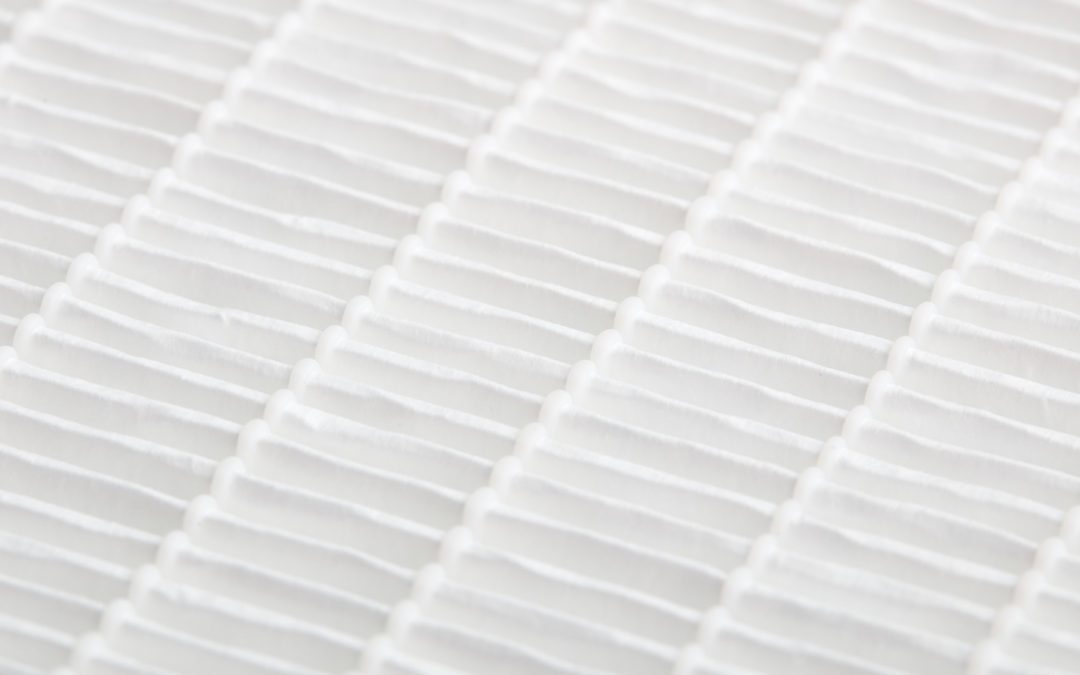Air filtration is an integral part of maintaining indoor air quality, protecting HVAC equipment from undue strain, and creating a comfortable indoor environment for every occupant. With increasing concerns about air quality due to annual wildfires that seem to only grow in severity, many homeowners might find themselves wondering — are HEPA filters a worthwhile investment? Could you use this high-grade air filtration technology to protect your home from pathogens and make the interior a safer, more enjoyable place to live?
The answer depends on the type of filter application and a few other factors. First, what is HEPA, and why is it the gold standard for air purification?
What is a HEPA Filter?
Although there is some debate about what exactly HEPA stands for, most generally agree it means a “high-efficiency particulate air” filter. These filters use a unique, multi-layered setup to generate extremely high-efficiency ratings when it comes to trapping invisible particles suspended in the air. According to the EPA, HEPA filters must remove at least 99.97% of particles 0.3 microns in size. For reference, an average human hair is about 70 microns in size. Most bacteria are no smaller than one micron. It’s easy to see that with a HEPA filter, it is possible to clean the air to a very high degree, ensuring that pathogens and other irritants aren’t circulating within a space.
The Different Types of HEPA Filters
Most HEPA applications remain limited to commercial spaces, where it is easier to set up large-scale HVAC equipment with the necessary hardware for filtration. Other typical applications include single-room “air purifiers” that have HEPA filters to allegedly “clean” the air inside of a single room.
Are there HEPA filters you can use at home? In a sense, yes. Usually referred to as “whole-house air cleaners,” these are typically entirely separate units that must work in concert with your HVAC system to trap particles.
The Benefits of Using HEPA at Home
Let’s imagine that you could install a HEPA filter in your home, either through a retrofit project or because you’re building a brand-new structure. What are some of the primary benefits you might see from using such technology?
- Reduced allergy symptoms from pet dander, dust, and pollen in the air. A HEPA filter can easily trap all these particles and lower the pollen count inside your home, making it simple to breathe more easily.
- Fewer odors from cooking or smoking. HEPA filters trap the smoke particles and prevent unwanted smells from entering other spaces around the home.
- Fewer airborne pathogens, as the highest grade HEPA filtration units capture even these particles.
The Downside: It’s Not a Common Application
Unfortunately, you can’t buy a HEPA filter to slide into your air conditioner like you would with a normal filter. If you could, you would find it to be an expensive monthly proposition. Generally, the options you have remain limited to those described above — large “whole home” purifiers, or per room solutions. Research shows that the individual room air purifiers may not be as efficient or as effective as their manufacturers claim. Just because you can’t easily tap into the power of a HEPA filter at home doesn’t mean that better air quality is out of reach, however.
High MERV Rated Filters Provide Mostly Comparable Results
Pleated filters with high MERV ratings are ideal alternatives to HEPA filters at home, and can be cost-effective even over the long term and with frequent filtration changes. Though a MERV-rated filter will never achieve the same removal efficiencies as a HEPA filter, that doesn’t mean they have no impact on the quality of your air. At MERV 11 and higher, the filters become capable of trapping particles down to the 0.3-micron size. Even if you cannot remove all these particles, taking even some of them out of the air could result in improved IAQ and fewer allergy symptoms. Combined with maintenance actions such as periodic duct cleaning, and it’s still easy to have clean air at home.
Choose the Filtration Solution Right for Your Home
Improving indoor air quality is a noble goal and an essential part of safeguarding your family’s health. Although full-scale HEPA filters for the home aren’t common and often pose a challenge for a retrofitting project, there are still ways to keep your air as clean and clear as possible. For some, in-room air purifiers may be an acceptable solution. For others, high-grade, high-level MERV filters represent the best option for most commercially available consumer air conditioners used in homes today.
Want to know more about air purification, keeping your ducts clean, and other important topics? Connecting with a trusted HVAC contractor in the area is an important step. Don’t hesitate to seek help and insight regarding your health and the air you breathe.

